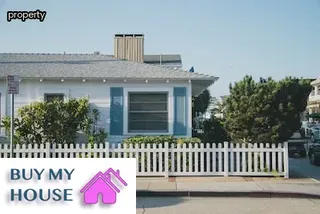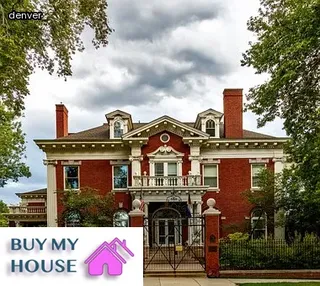In Colorado, homeowners who do not pay their Homeowners Association (HOA) fees are subject to serious repercussions. The Colorado Common Interest Ownership Act (CCIOA), which governs HOAs in the state, outlines foreclosure laws and homeowner rights.
According to CCIOA, an HOA may foreclose on a delinquent homeowner’s property to collect past-due assessments and other charges. An HOA may also file a lien against the property if the home owner fails to pay dues or other charges.
When an HOA has a lien on a property, it can prevent the sale of that home until all the delinquent payments have been made. If a homeowner fails to make payment after an HOA has filed for foreclosure or put a lien against the property, they face losing their home entirely.
It is important for homeowners in Colorado to stay informed about their rights under CCIOA and familiarize themselves with foreclosure laws so that they can protect themselves if they fall behind on their dues.

HOA's have certain written notice requirements they must follow before levying fines on delinquent homeowners. In Colorado, this is especially important as the legal consequences of failing to pay HOA dues can be quite severe; several state laws dictate how and when these dues must be collected.
Before an HOA can levy a fine on a homeowner for delinquent dues, they must ensure that all written notices are properly sent out, in accordance with the law. This includes providing written notice of the delinquency to the homeowner at least 30 days before imposing any fines or other penalties.
The notice must also include a clear explanation of the exact amount owed, including any late fees or interest that may have accrued during the time period in which payment was delayed. Homeowners should also be aware that HOAs have the right to place liens on properties if dues are not paid on time and these liens cannot be removed until all payments are made in full.
It is important for Colorado residents to understand their rights and responsibilities under state law regarding HOA dues so they can avoid harsh legal consequences.
In Colorado, Homeowners Association (HOA) dues are an important part of maintaining community standards and helping to fund shared resources. When dues are not paid in a timely manner, members can face serious consequences.
To ensure all community members understand their rights and obligations, it is important to understand the process for curing HOA violations. When a member fails to pay their dues, the HOA will typically issue a formal notice of violation with a timeline for cure.
This notice should include any applicable fines or fees associated with late payments. In most cases, if the member is able to pay within the set time frame, further action will not be required.
However, if payment is not received within the specified time frame, additional action may be taken such as hiring an attorney or filing a lien on the property. Understanding these steps can help residents avoid harsh consequences and remain in good standing with their HOA.

In response to an increasing number of delinquent Homeowners Association (HOA) dues in Colorado, new guidelines have been put in place with regard to assessments, liens, and foreclosure. If a resident is behind on their HOA dues, they may face fines, late fees and the possible filing of a lien against their property or even foreclosure of the home.
To ensure that residents are aware of their obligations to pay HOA dues on time, HOAs must give written notice at least 60 days before any assessment delinquency proceedings can occur. The notice must include the amount due along with an explanation of the assessment process including liens and foreclosure if necessary.
In addition, HOAs must provide additional notices prior to assessments being filed as well as prior to any lien or foreclosure proceedings taking place. It is important for Colorado residents to understand that if they do not pay their HOA dues on time they will be subject to these harsh consequences.
The repercussions of falling behind on Homeowner Association (HOA) payments can be serious for Colorado residents: the issue may be referred to collections, resulting in fees and interest charges that can increase the amount owed exponentially.
A board vote is necessary for delinquent accounts in order to refer them to collections, with each member having the power to decide if an account should be sent out.
The board will consider a variety of factors when making their decision, such as how long an account has been delinquent and if payment plans have been offered or accepted.
All members must come to an agreement before any action is taken, so it's essential for boards to thoroughly discuss all available options before voting on whether or not delinquent accounts should be referred to collections.

Small Claims Court is an option for both Owners and Homeowner's Associations (HOAs) in Colorado if delinquent HOA dues are not paid. The consequences of not paying HOA dues can be severe, and this type of legal action can help resolve the issue quickly.
It is important to remember that while Small Claims Court may be a viable option, it should be considered as a last resort. Both parties must adhere to statutory limits set by the state when filing their claim.
The court also has the authority to award monetary damages, including attorney fees and court costs. Ultimately, it is up to the Owner and HOA to reach an agreement outside of the court setting before taking legal action.
If negotiations fail, Small Claims Court may be an effective way to settle disputes regarding delinquent HOA dues in Colorado.
When it comes to making payments on homeowner association (HOA) dues, Colorado residents should be aware that assessments come first. HOA dues are generally paid on a quarterly or annual basis and are used to fund the maintenance of common areas and other services.
If a homeowner falls behind on their payments, they can face serious consequences such as fines, liens, and even foreclosure. The board can also terminate their membership in the HOA if delinquent payments persist for too long.
While these measures are extreme, they are necessary for the HOA to remain financially stable. It is important for homeowners to understand that any payment past due will need to be made before any new assessments can be accepted.
This ensures that all members are paying their fair share and helps keep the community running smoothly for everyone involved.

Colorado residents who fail to pay Homeowner Association (HOA) dues face harsh consequences, including a potential lawsuit. Under the Colorado Common Interest Ownership Act (CCIOA), an HOA may file suit against a homeowner in order to collect on delinquent fees.
If a court upholds the HOA’s claim, the homeowner can be ordered to pay late fees, fines and damages. In some cases, foreclosure is even possible if payments are not rendered in a timely manner.
Residents should also be aware that violating CCIOA rules can result in additional penalties such as legal costs and attorney’s fees, as well as interest on any sums owed. It is essential for homeowners to become familiar with their rights and responsibilities under CCIOA in order to avoid further legal action.
Attorneys in the Homeowners Association (HOA) industry are actively working to hold Colorado residents accountable for delinquent HOA dues. Recent court rulings have made it clear that non-payment of HOA dues will result in serious legal consequences, including foreclosure and liens on property.
The increased enforcement of these laws is a result of a greater emphasis on attorney accountability, as attorneys must now strive for compliance with the law and ensure that their clients are not taking advantage of homeowners or neglecting their financial obligations. While the repercussions for delinquent HOA dues can be severe, attorneys are committed to making sure that Colorado residents understand their rights and responsibilities regarding such payments.
With this increased attention on attorney accountability, Colorado residents can expect to see more actions taken against those who fail to pay their HOA dues in a timely manner.

Due to the state of Colorado's strict enforcement of HOA dues, many residents across the state are facing harsh consequences when their dues become delinquent. Homeowners associations have been granted increased authority by the courts to collect outstanding debts from members who fail to pay their assessments on time.
This has resulted in legal action being taken against residents who fall behind, such as liens being placed on properties and even foreclosures. The situation has grown so severe that many HOAs have hired debt collection agencies to help them collect owed funds.
It is important for homeowners in Colorado to stay current on their dues and be aware of the potential repercussions if they do not keep up with payments. IAC's most read posts on HOA law provide valuable information about Colorado's HOA regulations and how they can protect themselves from facing serious legal consequences due to delinquent dues.
It is important for Colorado residents to be aware of the laws related to Home Owners Association (HOA) dues in order to avoid any harsh consequences. Failing to pay HOA dues can have serious repercussions, including late fees, legal action, and even foreclosure.
It is vital for individuals to understand the legal implications of not paying HOA dues in a timely manner. Understanding the archived posts related to HOA law can help Colorado residents remain informed and up-to-date on current regulations.
These archived posts provide an overview of all relevant information regarding HOAs in the state of Colorado, making them an invaluable resource for those who want to stay informed. Knowing and understanding the law concerning delinquent HOA dues is essential for every Colorado resident; it is important to keep track of any changes that may occur over time by reading archived posts concerning HOA law.

In Colorado, the consequences of delinquent Home Owners Association (HOA) dues can be quite severe. Not only can those who fail to pay their dues face legal action and fines, but they could also face eviction from their homes.
This has led to a certain amount of public outcry over what many view as unfair penalties. As such, popular opinion has become an influential factor in shaping HOA law changes in the state.
For instance, some legislators are advocating for more lenient payment plans and better communication between HOAs and residents with overdue payments. Others have proposed capping the amount that homeowners can be fined for missing payments or reducing the number of days before an eviction order is issued.
Regardless of which direction the law takes, it's clear that popular opinion is having an impact on how HOAs operate in Colorado.
The trend of nationally recognized HOA policies and regulations are increasingly harsh when it comes to delinquent dues. In the state of Colorado, residents who fail to pay their Homeowner Association (HOA) fees on time face a wide range of consequences depending on the severity of their delinquent payments.
These may include accumulating interest charges, legal action, or even foreclosure proceedings. Furthermore, HOAs may impose additional restrictions on those who are not up to date with their dues.
Such restrictions can range from banning certain activities in the homeowner’s property to limiting their access to amenities such as swimming pools or gyms. The severity of these penalties is a reminder that HOA dues should be paid promptly and in full in order for homeowners to avoid serious financial and legal repercussions.

Colorado has recently implemented stricter legislation governing homeowners association (HOA) dues that are delinquent. Residents of the state now face harsher consequences for failing to pay their HOA dues on time and in full, including increased fines and legal action.
The new laws outline specific penalties for residents who do not adhere to the payment schedule, such as late fees, interest charges, and ultimately court-ordered obligations. In addition, HOAs are empowered to take action more quickly, with less warning and fewer opportunities for residents to make payment arrangements.
Colorado's updated laws are intended to provide a stronger deterrent against delinquency and ensure that HOAs have the resources they need to operate effectively.
Homeowners in Colorado face some of the harshest consequences for delinquent Homeowner Association (HOA) dues. In recent years, the Colorado Common Interest Ownership Act (CCIOA) has implemented changes to foreclosure laws that have impacted homeowners’ rights and their ability to protect their homes from unlawful foreclosures.
It is important for homeowners to understand what these changes are and how they can take ownership of their rights by understanding best practices for avoiding fines or legal action with their HOA. While these changes may be concerning, it is also important to assess the impacts of recent updates made to CCIOA foreclosure laws in order to better prepare yourself as a homeowner.
Additionally, copyright notices should be taken into account when using content related to HOAs as there may be further regulations that could affect you and your property if not followed correctly.
In Colorado, homeowners associations (HOAs) have specific statutes of limitations for delinquent dues. According to the Colorado Real Estate Commission, an HOA can take action against a homeowner for nonpayment of dues up to six years from the date of the first delinquency.
In certain circumstances, such as when there is a written agreement between the HOA and the homeowner, this time frame could be extended beyond six years. Homeowners who fail to pay their dues after this period may face harsh consequences such as fines and legal action brought by their HOAs.
It is therefore important that Colorado residents are aware of the statute of limitations for HOA in their state so that they can ensure timely payment of dues and avoid facing severe penalties.

The Colorado legislature recently passed a new law that has set up harsher consequences for delinquent Homeowners Association (HOA) dues. Colorado residents who fail to pay their HOA dues on time will now face severe penalties and fines.
The law, which went into effect on January 1, 2020, requires HOAs to give homeowners at least 30 days' notice before taking legal action for late payments. If the homeowner does not pay the dues within this 30-day period, the HOA is allowed to place a lien on the property and could even pursue foreclosure if necessary.
Additionally, any legal fees or court costs incurred by the HOA in collecting delinquent dues will be assessed against the homeowner as well as any other late fees or penalties associated with the unpaid balance. This new law is meant to ensure that HOAs are able to collect all due payments in a timely manner while also protecting homeowners from excessive financial repercussions in cases of delinquency.
In Colorado, it is possible for a Homeowners Association (HOA) to evict an owner who has delinquent dues. If a resident is not paying their HOA dues on time, the HOA may assess a late fee, suspend certain privileges, and even take legal action.
If a homeowner does not pay their dues by the date specified in their contract with the HOA, they could face dire consequences such as eviction from the property. The Colorado Common Interest Ownership Act outlines what steps an HOA can take when dealing with delinquent homeowners and provides protection for both parties.
If an owner does not comply with the demands of their HOA, the association could file a lien against the homeowner's property which would prevent them from selling until the debt is paid off. In extreme cases, an HOA might even be able to pursue foreclosure against an owner who has fallen behind on payments.
It is important for Colorado residents to be aware of these potential consequences so that they can avoid defaulting on their obligations to their HOA.
If you are a Colorado resident struggling to pay delinquent Homeowner’s Association (HOA) dues, the consequences can be severe. Fines and legal action may be taken by the HOA, resulting in lien foreclosure or even eviction from your home.
However, there are ways out of an HOA in Colorado. If you choose to move, you will need to pay any outstanding dues at the time of sale in order for the deed to transfer properly.
You may also have the option of negotiating with the HOA board for a payment plan or other agreement that allows you to resolve your debt without serious repercussions. Regardless of your situation, it is important that Colorado residents understand their rights and obligations when it comes to paying HOA dues so they can make informed decisions and avoid further complications.
A: In Colorado, delinquent HOA dues can be enforced through a judicial foreclosure process. This involves filing a lawsuit to obtain a court judgment, followed by a public auction or foreclosure sale of the property.
A: Yes, according to Propublica's website (Propublica.org), Denver is one of the cities impacted by the issue of delinquent HOA dues in Colorado.

A: In Colorado, if a homeowner falls behind on their HOA dues, the association can initiate foreclosure proceedings against the owner. If the lender has a mortgage on the property, it is typically notified of the delinquency and has the option to pay off the debt or allow foreclosure to proceed. If neither party pays off the debt, then either party may bring a lawsuit in order to litigate any disputes.
A: Depending on the severity of the delinquency, Colorado residents may face late fees, liens on their property, or even foreclosure of their home in order to pay off the outstanding debt.
A: The pandemic has caused many challenges for creditors and property managers in Colorado when it comes to delinquent HOA dues. With many individuals and businesses facing financial hardship, some are unable to pay their dues on time. This has led to an increase in delinquencies, which poses a challenge for creditors and property managers who must find ways to collect the outstanding payments while still providing consumer-friendly service.

A: In Colorado, delinquent HOA dues in a condominium or condo are referred to as Health and Safety Lien Assessments.
A: A law firm can assist in the collection of delinquent HOA dues in Colorado by sending notices of delinquency via postal mail and filing legal action as necessary. They may also be able to help determine any additional expenses associated with the process, such as foreclosure costs.
A: In Aurora, Colorado, a homeowner who wishes to challenge their HOA's decision to declare their dues delinquent must submit a petition for veto. If the petition receives enough signatures, the City Council has the power to veto the HOA's decision.
A: In Colorado, it is necessary to provide specific evidence of the outstanding debt and that all attempts to collect have been unsuccessful when serving a judgment for delinquent HOA dues at the door. This includes a copy of any receipt or invoice associated with the debt, as well as other documents showing attempts to collect payment.
A: In Colorado, if a homeowner does not pay their HOA dues, the association can take legal action to recover the unpaid balance. This could include filing a lien on the property, foreclosure proceedings, and even eviction.